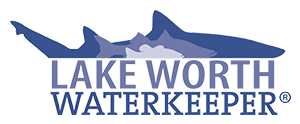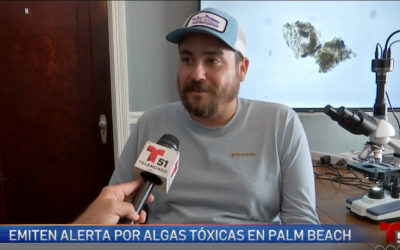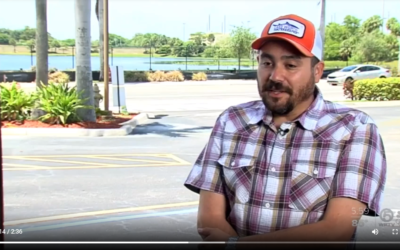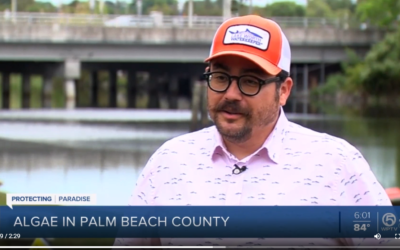The Lake Worth Lagoon,
our namesake, is a narrow estuary that runs parallel with the
Atlantic Shoreline in Palm Beach County.
The Lake Worth Lagoon is a northern estuary of the Greater Everglades Ecosystem, it has a unique history that has brought some challenges, but has given us quite an opportunity that to this day we’re still working on.
The lagoon used to be a landlocked freshwater lake considered the northern extent of the Everglades, connected by underground aquifer and surface wetlands. With development came the conversion to the coastal estuary that it is today. Now a series of canals connects the lagoon to Lake Okeechobee, and inlets connect to the Atlantic Ocean. Today, the lagoon is a coastal estuary of tidally influenced brackish water.

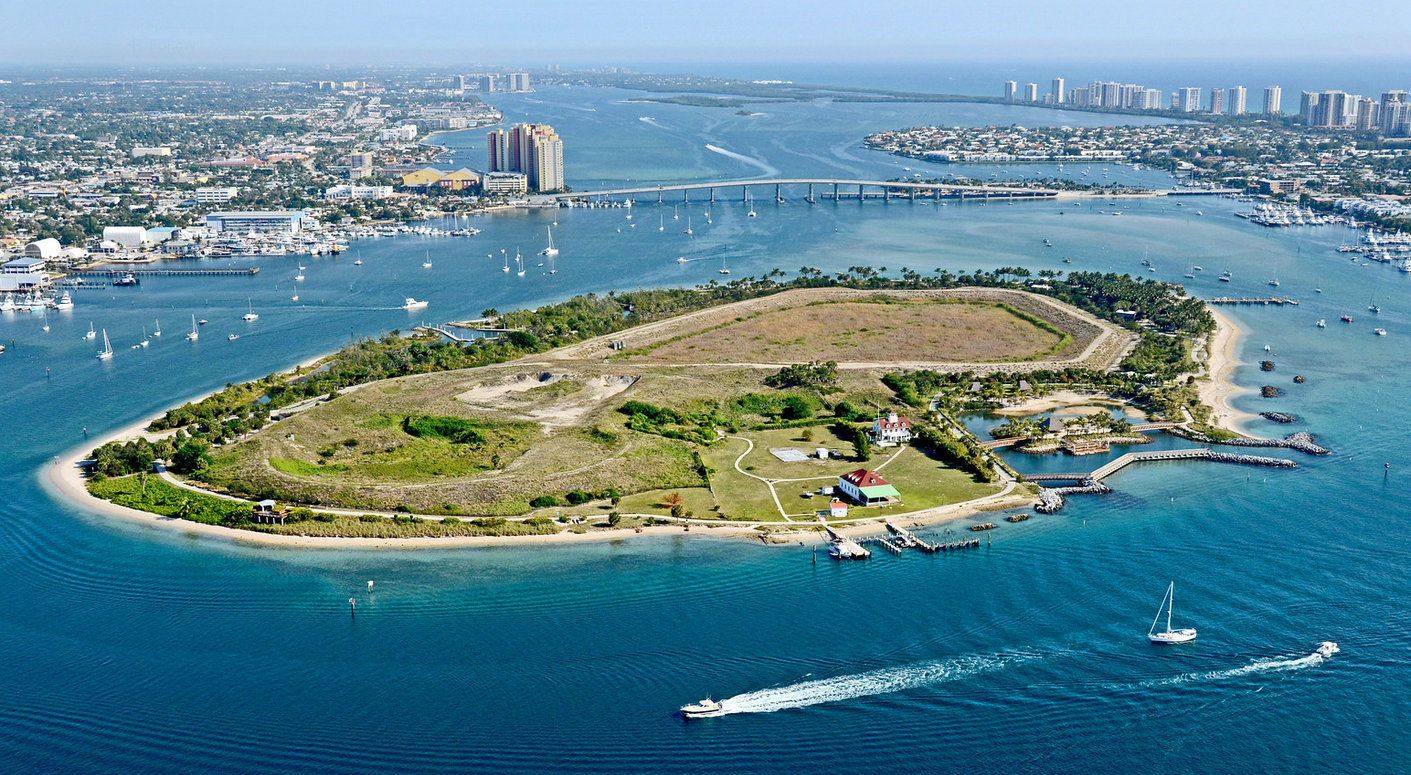
The Lake Worth Lagoon is home to popular beach side towns that support the community’s significant tourism industry.
There’s also a vital local fishing and diving economy, where captains use the inlets to access the Florida Reef Tract. The same environmental threats faced throughout South Florida are found here: farm and urban runoff pollution, coastal overdevelopment, poor fisheries management, and laissez faire government policy. These issues constantly threaten the vitality of our watershed and the businesses which depend on its health.
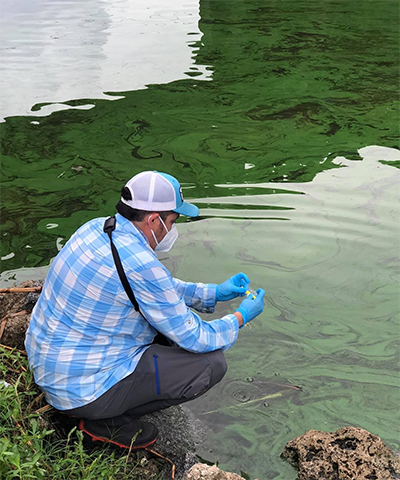
Lake Worth Waterkeeper History
Lake Worth Waterkeeper was founded in late 2017 to fill the void needed of a vocal advocate for the Lake Worth Lagoon, especially in regards to its role in the Greater Everglades ecosystem. Many decisions have been made that ignore the Lagoon’s needs and all too often it has bore the brunt of environmental problems because of it.
Performing vital community services, among them:
Water quality testing
Legal advocacy
Environmental education for youth
and more.
Advierten de algas tóxicas en los canales
Las autoridades han estado colocando afiches advirtiendo sobre la posible presencia de algas tóxicas en los canales, pero para un experto con el cual hablamos esta advertencia no refleja la severidad del problema. Reinaldo Diaz, de la Organización Lake Worth...
Algae spotted on M canal in western Palm Beach County as blooms continue
Algae has been spotted on the M canal, which feeds into the West Palm Beach watershed. It's unclear if the algae is toxic, but signs were spotted warning the public of the dangers. The algae slick was spotted over the weekend 25 miles west of West Palm Beach by Lake...
Health alert sign posted at Lake Worth Beach park because of algae concerns
In past years, algae has mostly been a problem that has impacted Martin County and other parts of the Treasure Coast. However, residents in Palm Beach County are seeing the green slime show up in some waterways with summer still about a month away. Algae was spotted...
About the Waterkeeper
Reinaldo Diaz, J.D.
President, Founding Member
As a native Floridian, Reinaldo was brought up in south Florida’s ocean-centric culture. As an avid waterman, whether it’s fishing, diving, or paddling, he’ll take every opportunity to be out on the water. These passions led him to a career as a divemaster and guide. Yearning to more effectively share this lifestyle by educating the public, Reinaldo studied communication and anthropology at Florida Atlantic University, eventually finishing with a law degree from Shepard Broad Law Center at Nova Southeastern University. His passion is advocating on behalf of his home, to share the unique lifestyle that he was brought up on.
Reinaldo’s experience with Waterkeeper Alliance began in May 2017 as Executive Director of Calusa Waterkeeper. Here he planned and implemented a fundraising strategy, while diving into the surrounding environmental community. In his free time, Reinaldo enjoys lengthy backpacking trips searching for wildlife encounters, fly fishing, scuba and free diving, or paddling.
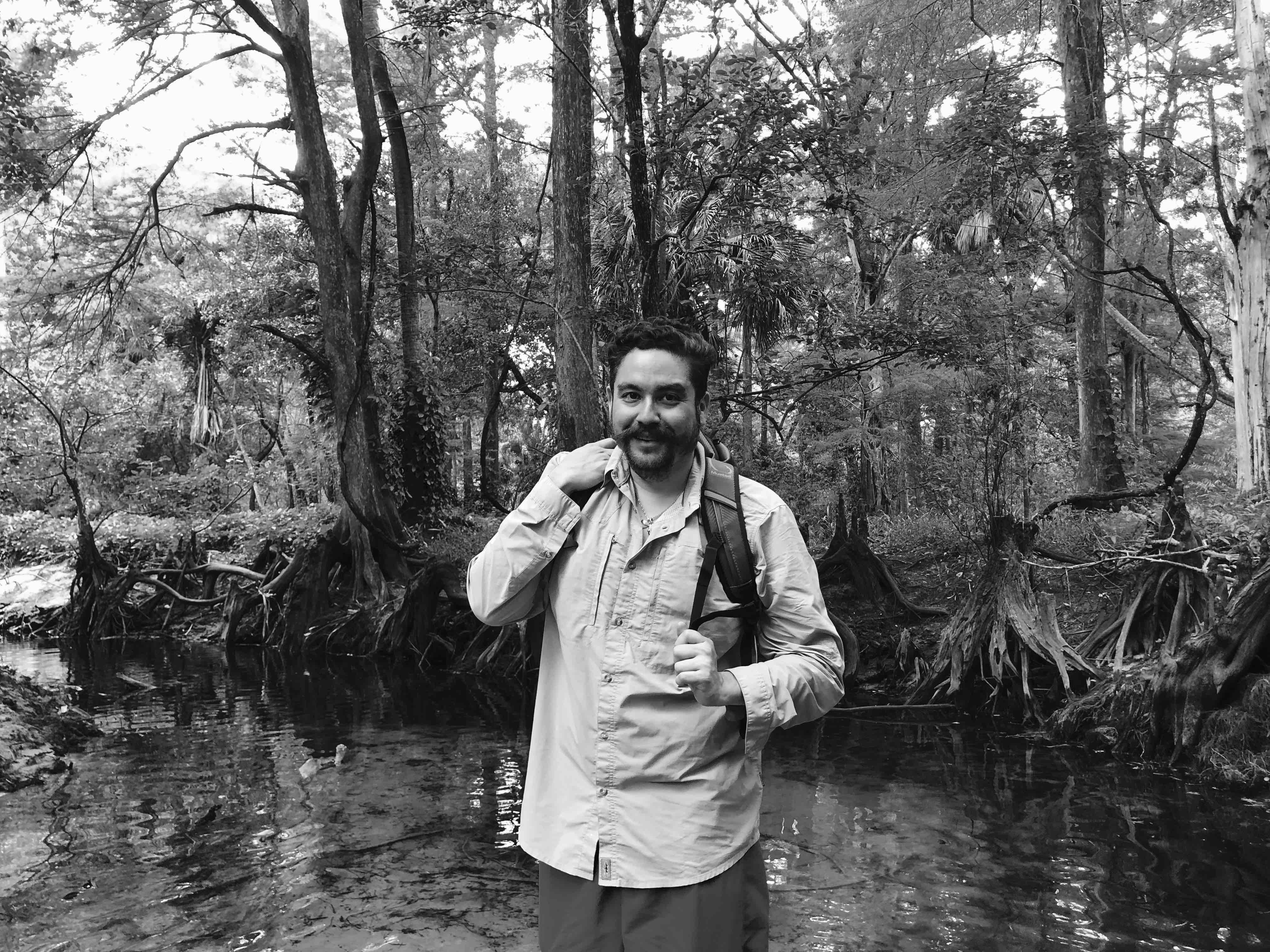
I have put years of work into preserving and protecting the LWWK, since its founding in 2017. Today I am deeply appreciative of our growth, and the amazingly talented staff and board I’m surrounded by. We’re just getting started.
Board of Directors
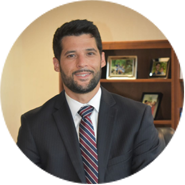
Ryan Abrams
Vice President
Ryan is also a graduate of Shepard Broad Law Center at Nova Southeastern University and currently practices at his own law firm where he specializes in property rights, land use and zoning, business and contracts, and government and public procurement law. Ryan is an avid fisherman and paddler, and a fantastic family man.
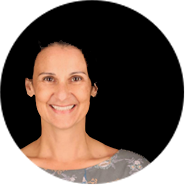
Emily Mauri
Director
Emily has been very active in the environmental community in recent years and we’re so happy to bring her along as our newest board member. She is a fantastic fly fisherwoman and has been involved in the industry for years, especially in organizing The Fly Fishing Show. When she’s not out throwing flies at all kinds of fish she is running her zero waste business called JAR in Hobe Sound.
Staff
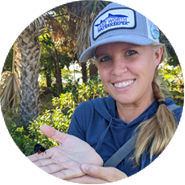
Melissa Landis
Education Facilitation and Development
Melissa is a highly educated facilitator who, as Elevate Palm Beach, will be taking our education programs to the next level by bridging the gap between us and the environment, by reflecting on our relationships with ourselves, each other, and the land (as Aldo Leopold says it). She has been leading the LaGoonies and is intent on making her mark in changing how our community is educated. She does this while working on her Ph.D. at Prescott College, researching the historical paradigms of our current public school systems, and looking at alternative grassroots education as a bridge into a truly sustainable educational system. In her free time, Melissa enjoys quiet time with her books and nature journaling.
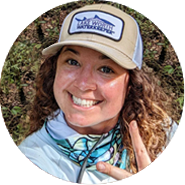
Jaimie Schider-Heisel
Webmaster
Jaimie is an environmental activist, who happens to be the former chairperson of our friends at Surfrider Foundation’s Palm Beach County chapter. She is a great web designer and graphic artist, and she is in charge of keeping our website beautiful. Let’s just say Jaimie has a big personal stake in the health of the Lake Worth Lagoon, because she lives on it in a sailboat!
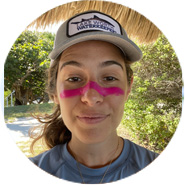
Alex Melligon
Education Specialist
Originally from New Jersey, Alex moved to West Palm Beach after college to live by the ocean and start her career in environmental education. She has worked and volunteered at various nature centers around Palm Beach County, gathering a wealth of experience working with children, animals, and nature lovers of all ages. She joins the Lake Worth Waterkeepers as a facilitator for our LaGoonies program, where she gets to share her love of our coastal ecosystems and unique watershed. She dreams of fostering a community committed to protecting our environment, understanding how water connects us to our more-than-human communities, and building reciprocity and respect with the natural world. In her free time she surfs, snorkels, crafts, and cuddles with her cat.
Our Logo
The Lake Worth Waterkeeper logo represents 3 fish that are vital to our watershed:
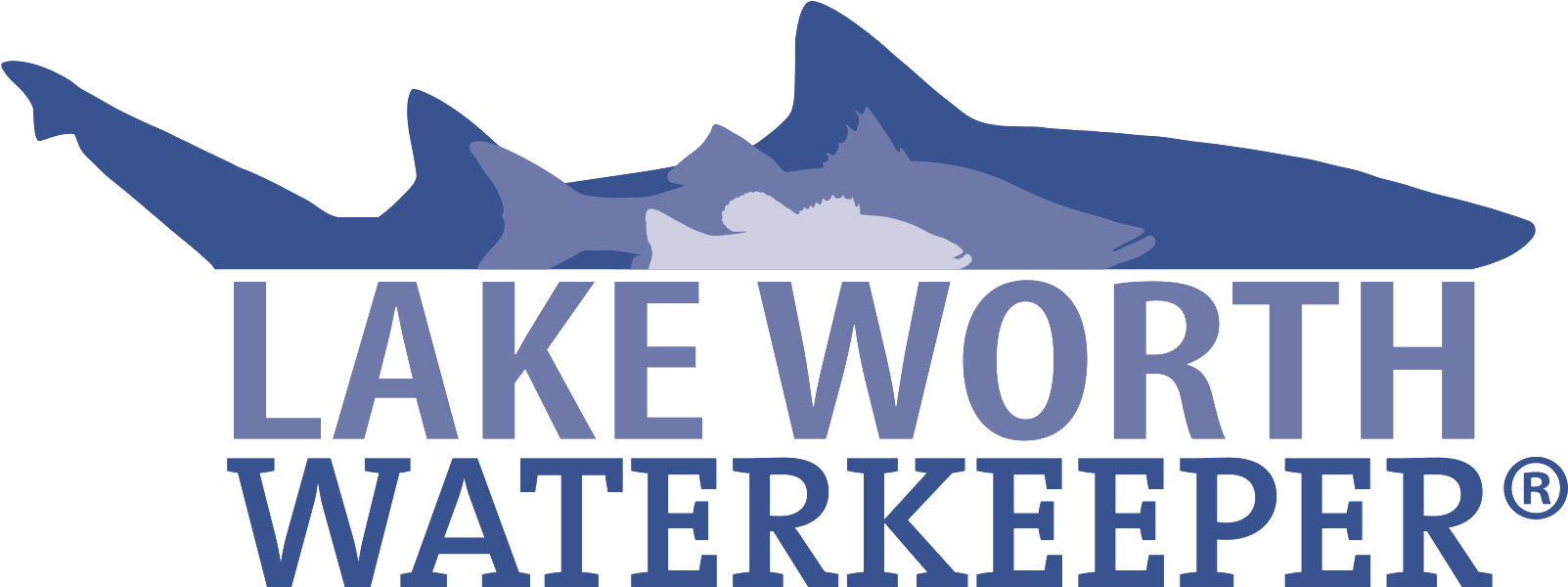

Largemouth Bass
Largemouth bass (Micopterus salmoides), the state freshwater fish of Florida, is a popular game fish native to North America. Their predatory behaviors as an apex predator makes them one of the most highly sought after fish, especially by anglers in Lake Okeechobee which is considered the best place to fish for largemouth bass.

Snook
Snook, there are 5 species of snook that inhabit our watershed: common snook (Centropomus undecimalis), small-scale fat snook (Centropomus parallelus), large-scale fat snook (Centropomus mexicanus), swordspine snook (Centropomus ensiferus), and tarpon snook (Centropomus pectinatus). With their broad salinity tolerance snook can be found throughout our watershed, but they struggle with habitat loss, poor water quality, and overfishing. Snook are highly sought after by fishermen because of their spirited fighting, often leaping to dramatic jumps. These fish are practically their own economy in the Lake Worth Lagoon, demanding a costly range of local specialty fishing tackle.

Lemon Shark
Lemon Sharks (Negaprion brevirostris) are found throughout Florida’s subtropical waters and are known to return to specific nursery sites for breeding. Many of these sites are located in our watershed, here they are key drivers of our local dive industry. Divers come from all over the world to dive with and photograph these sharks. Unfortunately, they are constantly threatened with overfishing, pollution, and the destruction of coastal mangrove and seagrass habitats that they need for their nurseries.
Goals & Objectives
To improve the waters of our jurisdiction, and its impacts on riparian and estuarine systems, habitat, and flora and fauna; also to ensure drinkable, fishable, and swimmable waters.
To promote public education concerning the historical significance, present condition, and future of our watersheds.
To increase public awareness of the importance of our waters to our quality of life.
To monitor and work to improve water quality, quantity, and flow characteristics.
To study the effect of domestic, commercial, and agricultural uses of our water resources.
To observe and participate in the activities of agencies responsible for the management of our watersheds.
